This Religion Called Christianity -1
Mike Ervin
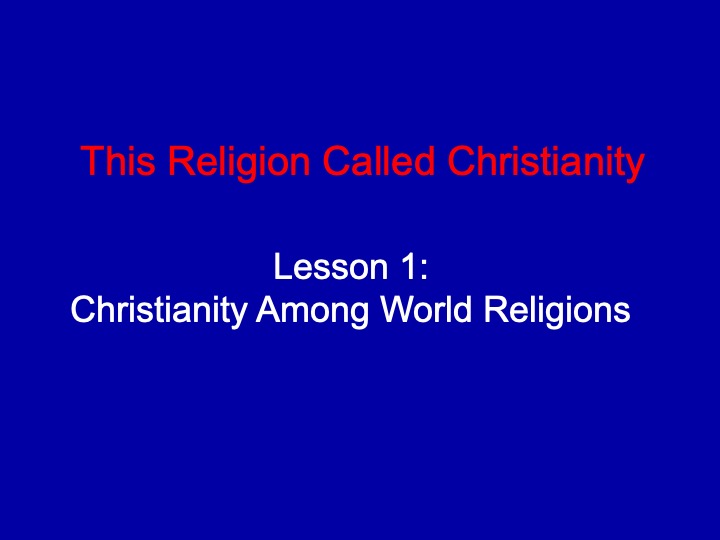
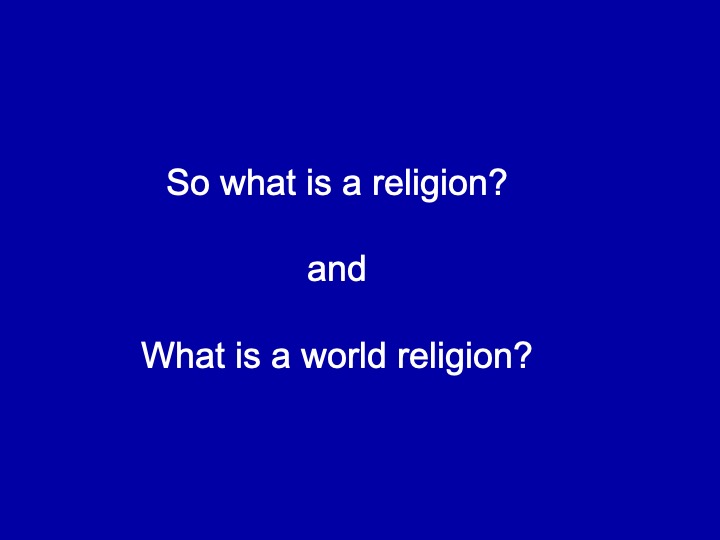
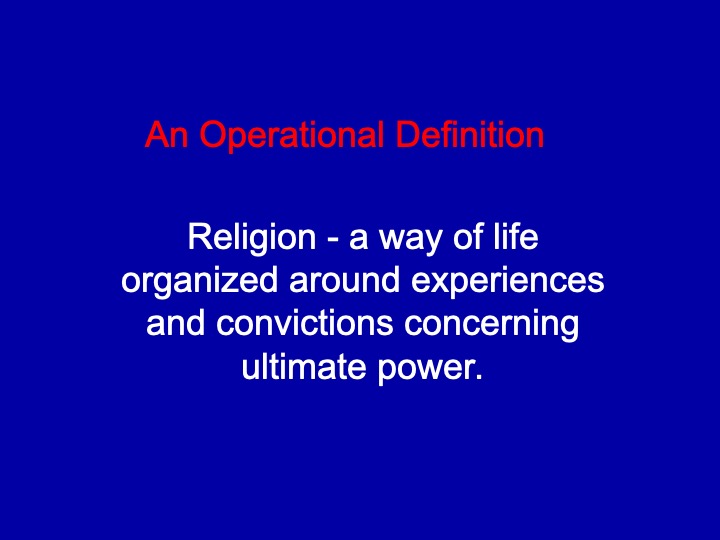
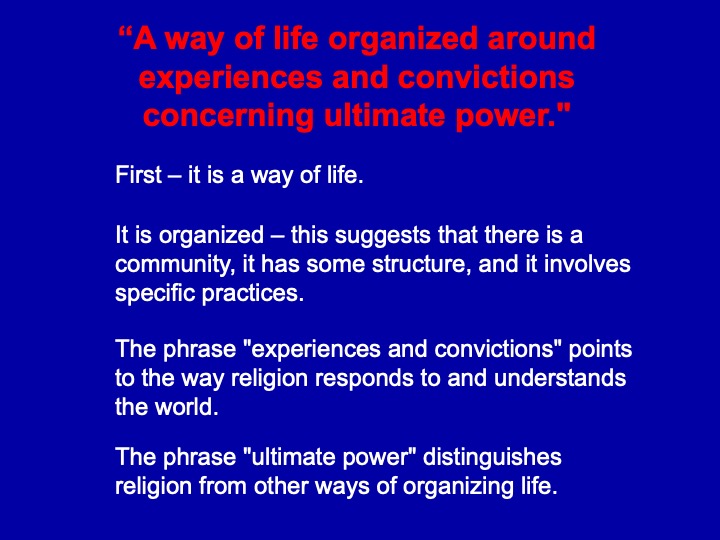
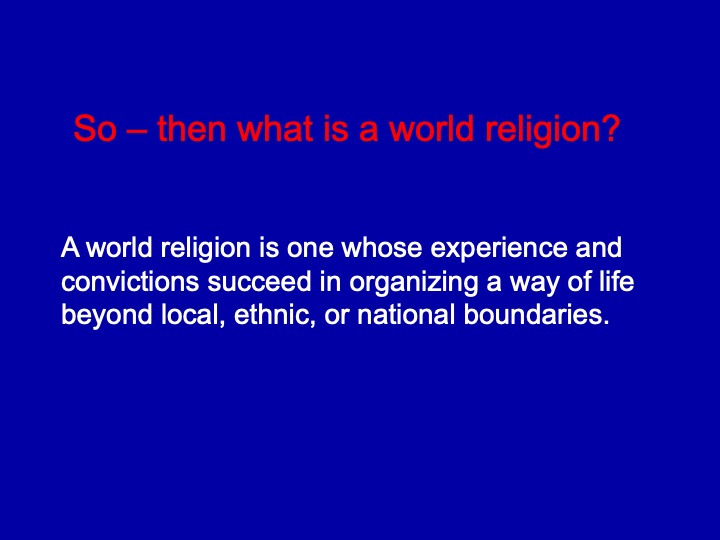
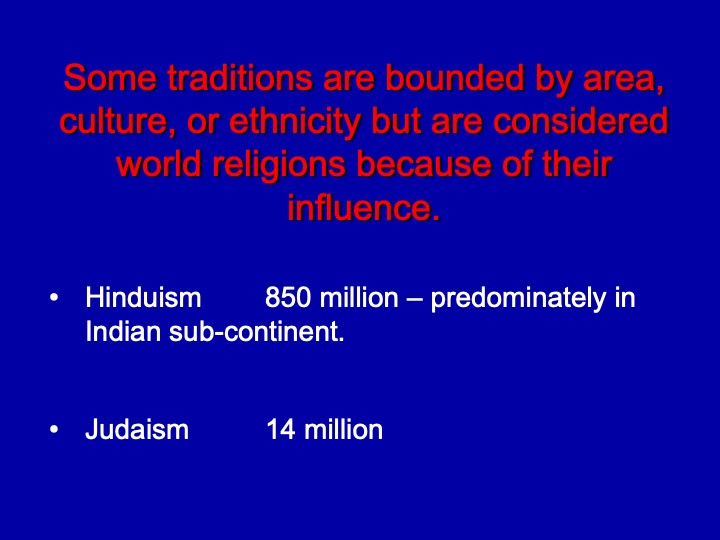
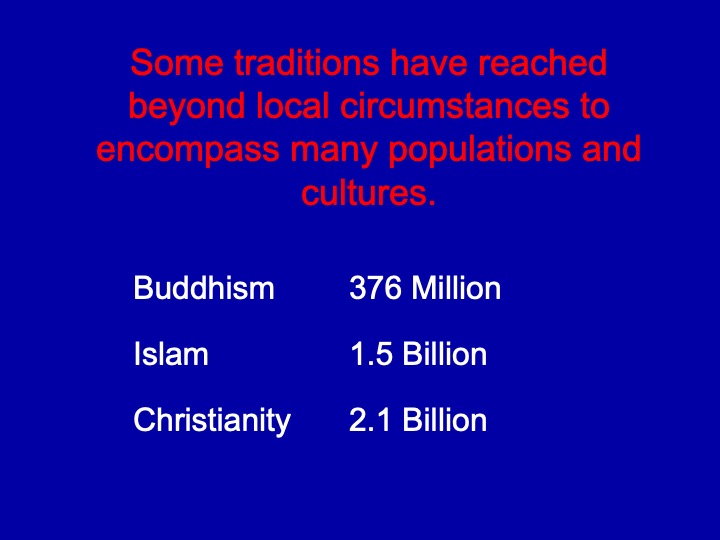
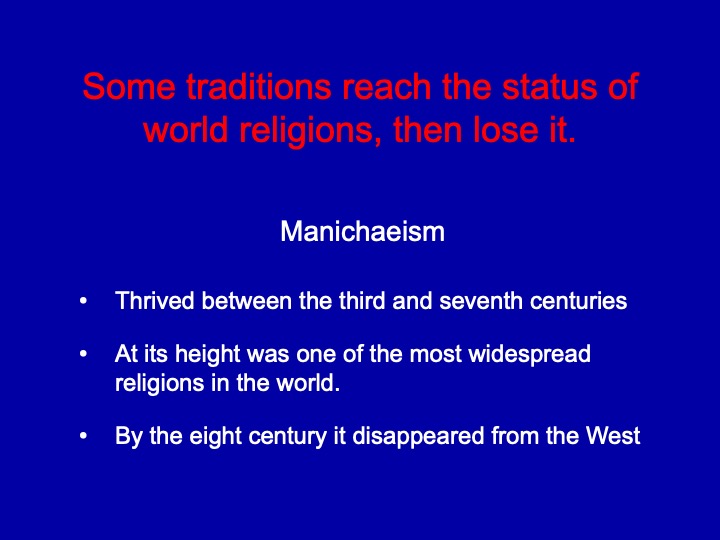
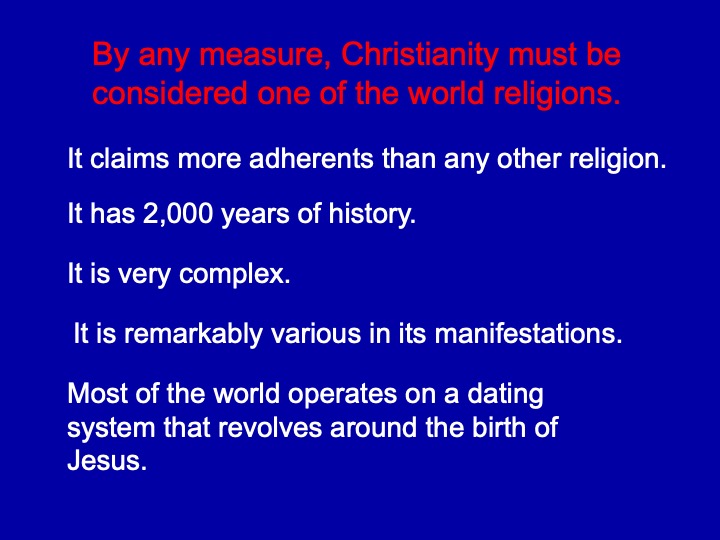
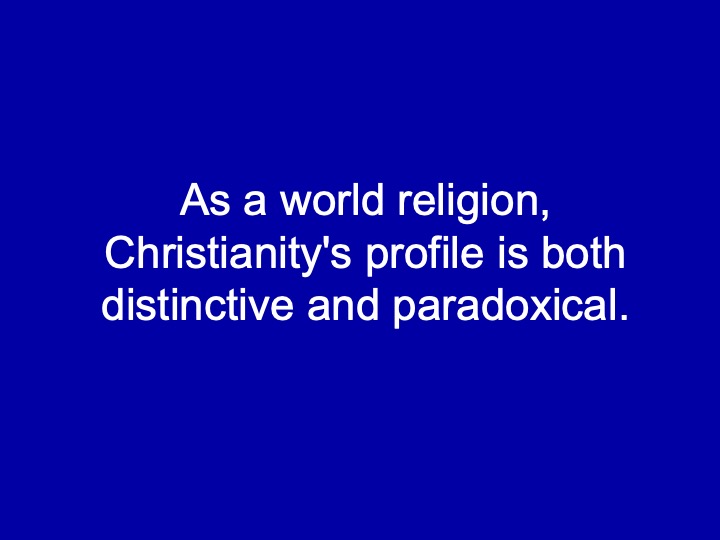
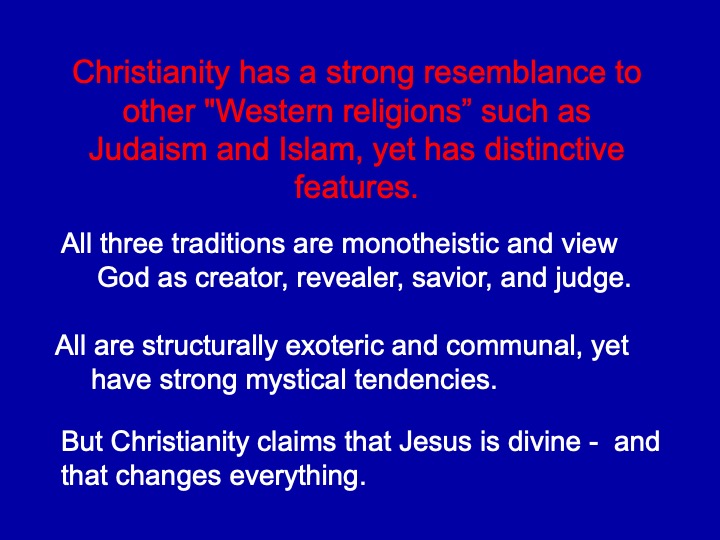
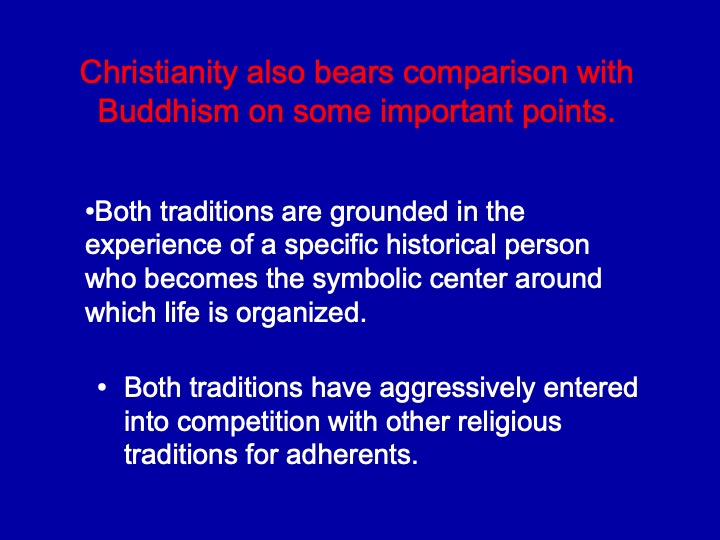
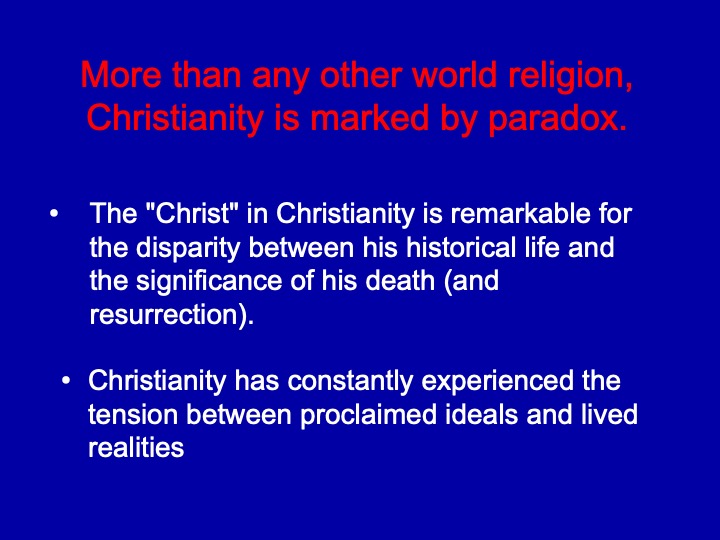
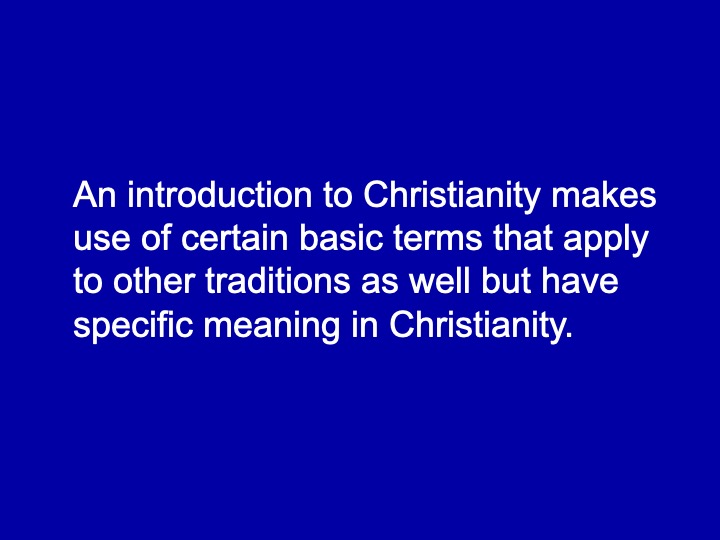
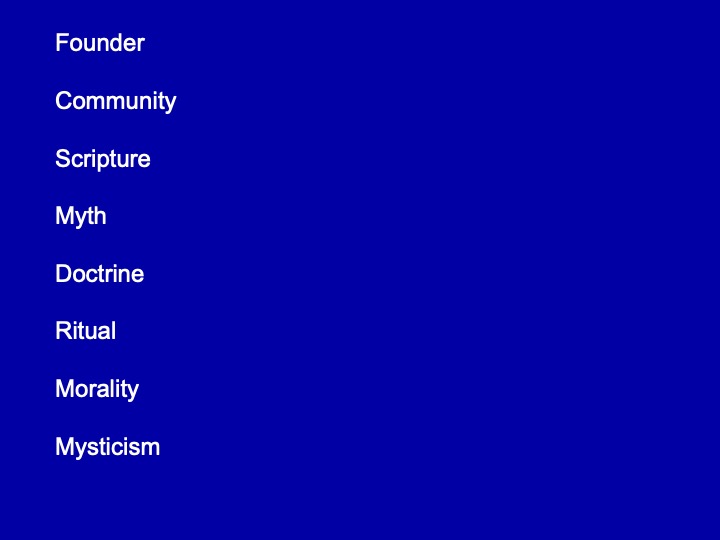
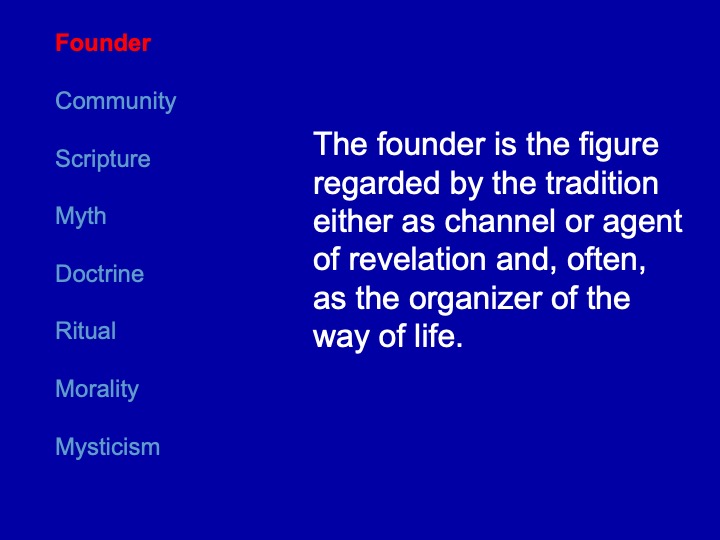
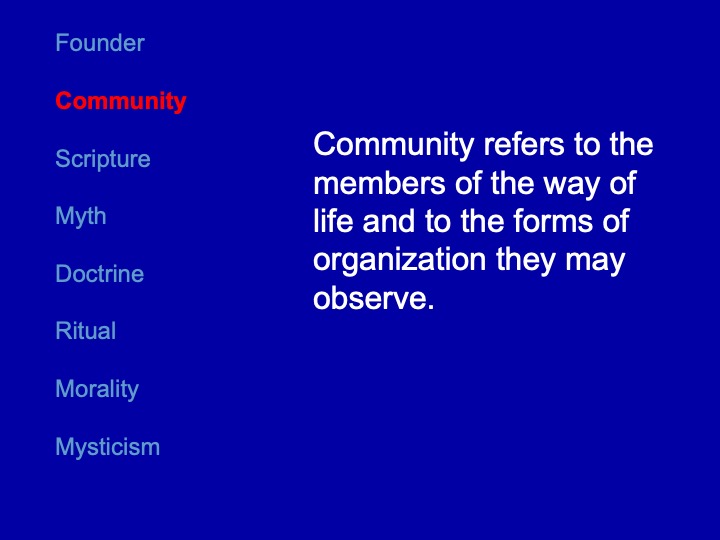
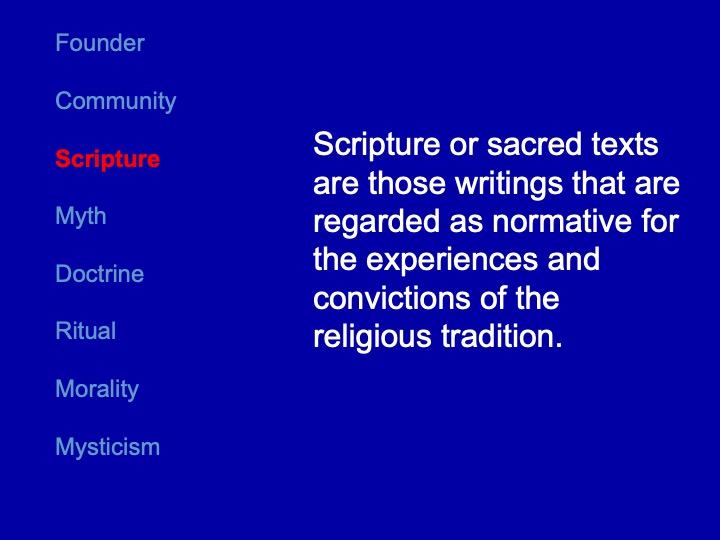
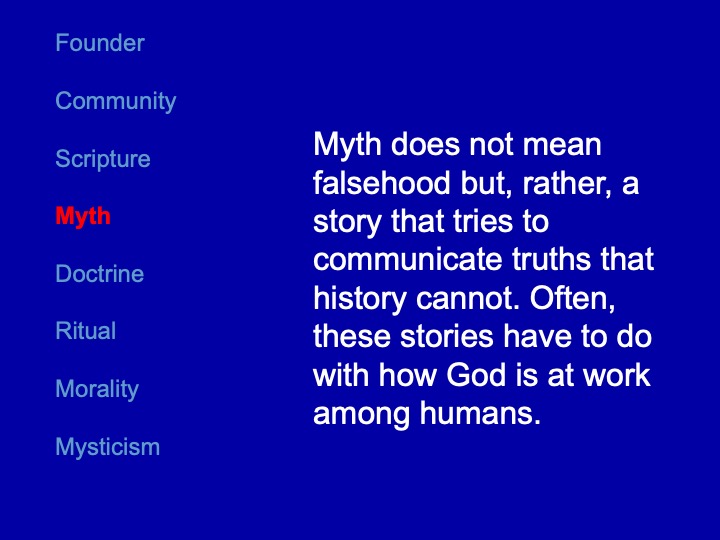
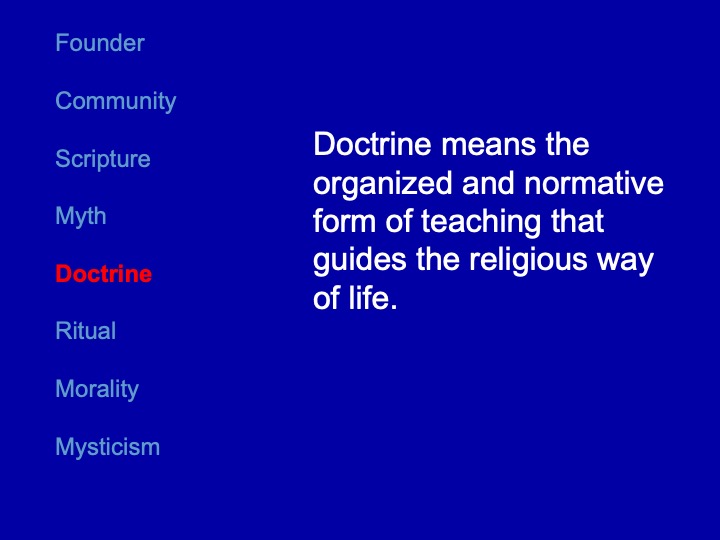
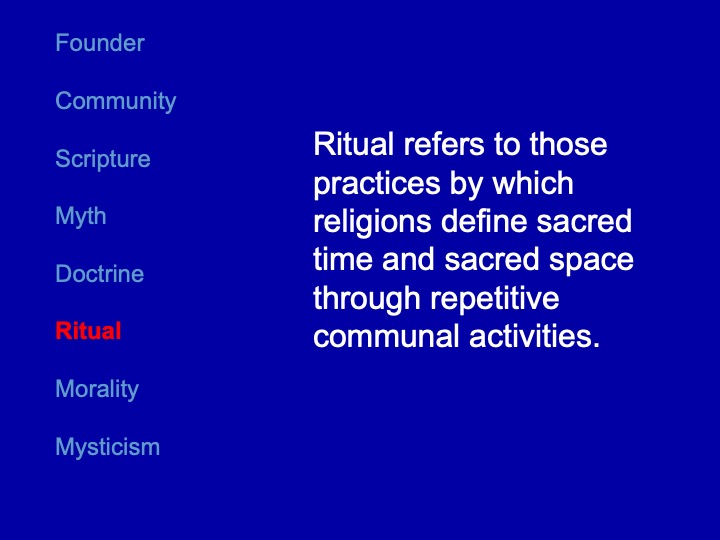
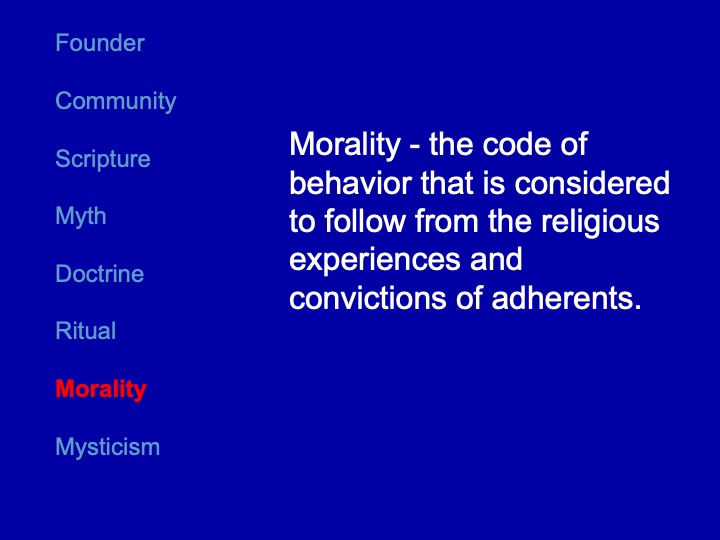
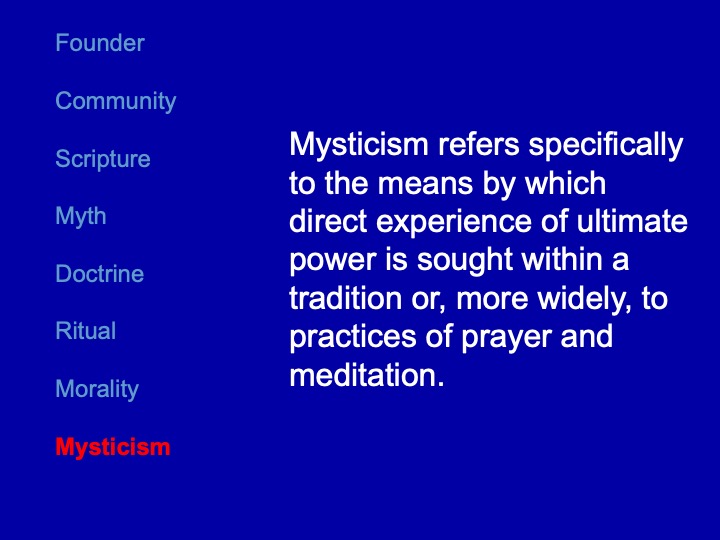
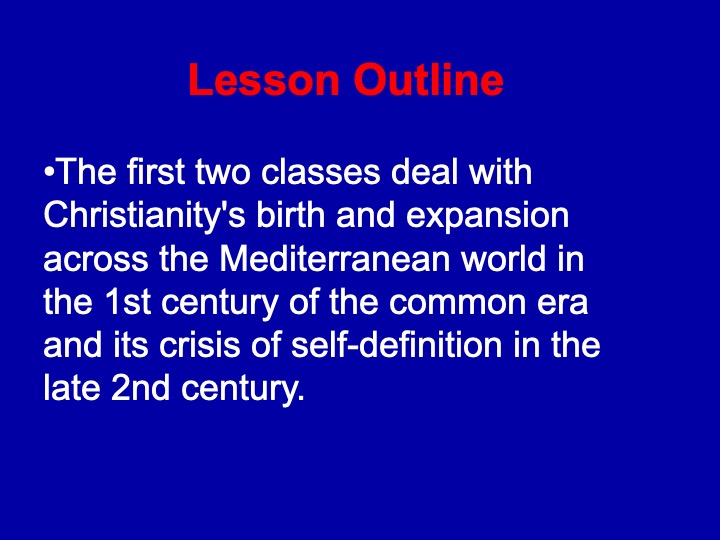
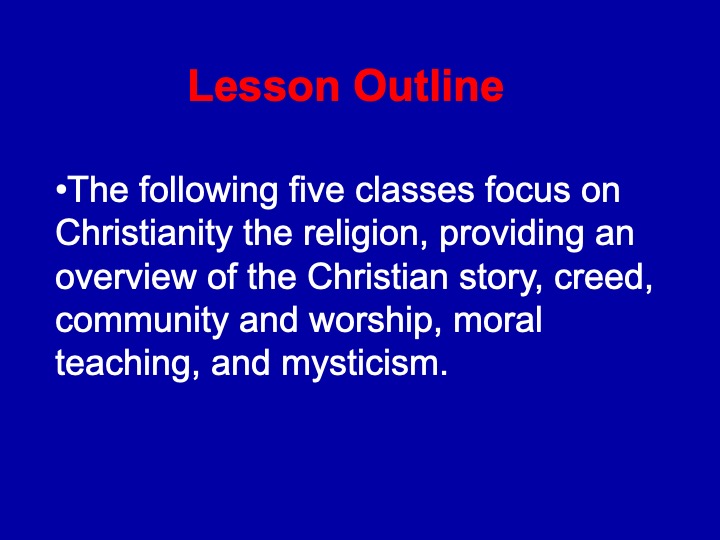
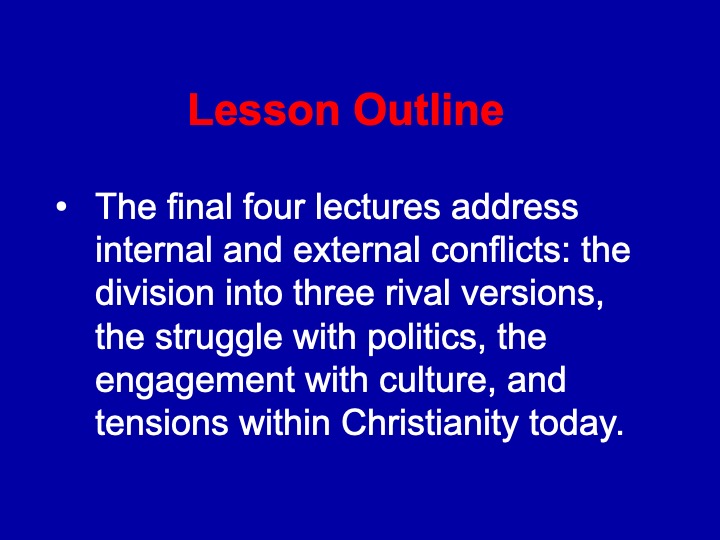
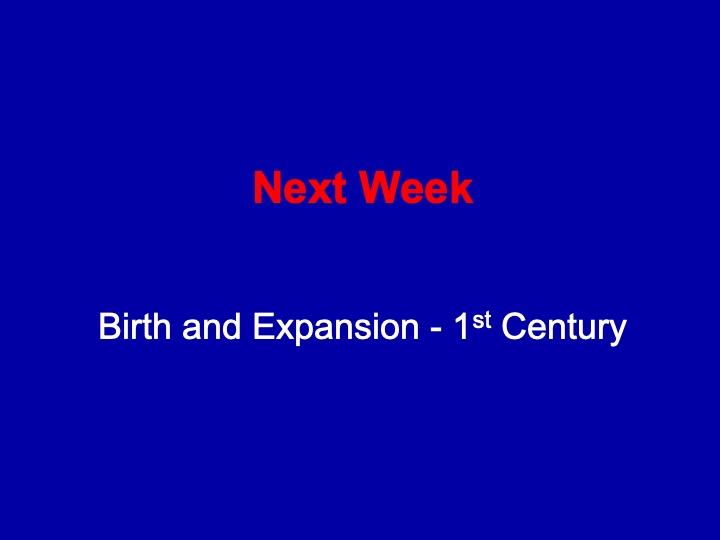
This Religion Called Christianity -1
Links
< Home Page > < This Religion Called Christianity >
This Religion Called Christianity
Lesson 1 Text
Christianity Among World Religions
Christianity is one of religion's great success stories. Beginning as a sect of Judaism in an obscure province of the Roman Empire in the 1st century C.E., it became the official religion of the Roman Empire by the 4th century, dominated the cultural life of Europe for much of its history, and now counts more than 2.1 billion adherents throughout the world.
It may seem strange to try to teach a class about Christianity to us after we have covered Islam, Buddhism, Hinduism, et. al. After all, Christianity is so much among us we should not have to review it – right. But because Christianity is so much among us that we often do not understand it as much as we think because there are so many versions of it around today and most of us barely understand the version we belong to.
So I am proposing to take us through a review of Christianity as a whole, not Presbyterianism, not even just Protestantism, but Christianity without all of the isms. Why has this religion been such a numerical success across so many different cultures, language groups, and ethnicities?
This Religion Called Christianity
This course provides a sense of Christianity as a whole in its most essential features. It cannot hope to deal in detail with all the complex variations that have entered into a tradition that has lasted two millennia and extended itself to every nation and virtually every language. The lectures concentrate on the basics. They seek to provide a clear survey of the most important elements of this religious tradition and a framework for the student's further study. We will be making a constant distinction between Christianity as a religion and Christianity as Christendom – that very uneasy marriage of church and state that existed for about 70% of Christianity’s history.
So we will be talking about the distinctness of Christianity – what makes it different. But we will also highlight its paradoxes – it is one of the most paradoxical of religions, and those paradoxical issues are what makes it so difficult for non-adherents to understand. While bearing a message of peace and unity, it has often been a source of conflict and division. While proclaiming a heavenly kingdom, it has often been deeply involved with human politics. While rejecting worldly wisdom, it has claimed the intellectual allegiance of great minds. These apparent contradictions arise from the complex character of Christianity's claims about God, the world, and above all, Jesus of Nazareth, whose death and resurrection form the heart of the good news proclaimed by this religious tradition. We are going to try to understand those claims.
So I have dubbed this first discussion as “Christianity Among World Religions” to try to put the remaining classes in context.
This Religion Called Christianity
Christianity is one of religion's great success stories. Beginning as a sect of Judaism in an obscure province of the Roman Empire in the 1st century C.E., it became the official religion of the Roman Empire by the 4th century, dominated the cultural life of Europe for much of its history, and now counts more than 2.1 billion adherents throughout the world.
It may seem strange to try to teach a class about Christianity to us after we have covered Islam, Buddhism, Hinduism, et. al. After all, Christianity is so much among us we should not have to review it – right. But because Christianity is so much among us that we often do not understand it as much as we think because there are so many versions of it around today and most of us barely understand the version we belong to.
So I am proposing to take us through a review of Christianity as a whole, not Presbyterianism, not even just Protestantism, but Christianity without all of the isms. Why has this religion been such a numerical success across so many different cultures, language groups, and ethnicities?
This Religion Called Christianity
This course provides a sense of Christianity as a whole in its most essential features. It cannot hope to deal in detail with all the complex variations that have entered into a tradition that has lasted two millennia and extended itself to every nation and virtually every language. The lectures concentrate on the basics. They seek to provide a clear survey of the most important elements of this religious tradition and a framework for the student's further study. We will be making a constant distinction between Christianity as a religion and Christianity as Christendom – that very uneasy marriage of church and state that existed for about 70% of Christianity’s history.
So we will be talking about the distinctness of Christianity – what makes it different. But we will also highlight its paradoxes – it is one of the most paradoxical of religions, and those paradoxical issues are what makes it so difficult for non-adherents to understand. While bearing a message of peace and unity, it has often been a source of conflict and division. While proclaiming a heavenly kingdom, it has often been deeply involved with human politics. While rejecting worldly wisdom, it has claimed the intellectual allegiance of great minds. These apparent contradictions arise from the complex character of Christianity's claims about God, the world, and above all, Jesus of Nazareth, whose death and resurrection form the heart of the good news proclaimed by this religious tradition. We are going to try to understand those claims.
So I have dubbed this first discussion as “Christianity Among World Religions” to try to put the remaining classes in context.
This Religion Called Christianity
So what is a religion? and What is a world religion?
An Operational Definition
Religion - a way of life organized around experiences and convictions concerning ultimate power.
First – it is a way of life.
It is organized – this suggests that there is a community, it has some structure, and it involves specific practices.
The phrase "experiences and convictions" points to the way religion responds to and understands the world.
The phrase "ultimate power" distinguishes religion from other ways of organizing life.
First of all – it is a way of life. Most religious people do not view their religion as something that happens for 1 hour a week. For most their religion is actually a world view that shapes the way they understand reality. Buddhists really do think differently than Christians. So religious views are pervasive in how life is lived.
Secondly – it is organized. Religion is not something that just happens in an individuals head. It involves communities of like minded people and usually some structure of organization. So religions are usually organized.
Third – is the phrase “experiences and convictions”. Religions tend to be ignited by a defining experience and as you can guess – for Christianity that was the Resurrection of Jesus Christ. And based on such experiences religions tend to develop certain convictions or beliefs and to understand the world in a certain way. And these experiences and convictions result in appropriate action in life – something we call morality.
Finally the term ultimate power is important. Religious people are usually not seeking something as mundane as pleasure, money or political power. They are also not just content to pursue happiness, or even the good. They are looking beyond to something that is in a sense ultimate.
So – then what is a world religion?
A world religion is one whose experience and convictions succeed in organizing a way of life beyond local, ethnic, or national boundaries.
There are many tribal religions for example – a tribal religion in central Africa, or in North America – that can completely meet the definition of a religion. They can completely explain the world in terms of experiences and convictions revolving about a view of ultimate power. But they do so only for a local tribe or for a local region.
A world religion goes far beyond that.
Some traditions are bounded by area, culture, or ethnicity but are considered world religions because of their influence.
• Hinduism 850 million – predominately in Indian sub-continent.
• Judaism - 14 million
Some traditions have reached beyond local circumstances to encompass many populations and cultures.
• Buddhism 376 Million
• Islam 1.5 Billion
• Christianity 2.1 Billion
Some traditions reach the status of world religions, then lose it. For example Manichaeism.
· Manichaeism thrived between the third and seventh centuries. At its height was one of the most widespread religions in the world. But by the eight century it disappeared from the West. Manichaean churches and scriptures existed as far east as China and as far west as the Roman Empire.
· It remained as a remnant in China until 14th century.
By any measure, Christianity must be considered one of the world religions.
• It claims more adherents than any other religion.
• It has 2,000 years of history.
• It is very complex.
It is remarkably various in its manifestations.
Most of the world operates on a dating system that revolves around the birth of Jesus.
- And is the dominant religion among many populations.
- Making it younger than Judaism, Hinduism, and Buddhism, but older than Islam.
- Both in terms of its internal development and in terms of its engagement with culture.
- Existing not only in three distinct groupings (Orthodox, Roman Catholic, Protestant), but in thousands of specific styles.
- B.C. (before Christ) and A.D. (Anno Domini).
- So for all of these reasons….it is clearly a major religion.
This Religion Called Christianity
As a world religion, Christianity's profile is both distinctive and paradoxical.
Christianity has a strong resemblance to other "Western religions” such as Judaism and Islam, yet has distinctive features.
· All three traditions are monotheistic and view God as creator, revealer, savior, and judge.
· All are structurally exoteric and communal, yet have strong mystical tendencies.
· But Christianity claims that Jesus is divine - and that changes everything.
Indeed from the first century Jewish writings claimed that Christians had placed two powers in heaven – and were thus polytheists and therefore no longer Jewish.
The Koran says that Christians created partners for Allah and had therefore retreated into polytheism.
Christians of course claim they are thoroughly monotheistic – but in a much more complex way - they define their monotheism not as a singularity – but as a unity – a unity of three divine persons.
Christianity also bears comparison with Buddhism on some important points.
• Both traditions are grounded in the experience of a specific historical person who becomes the symbolic center around which life is organized.
• Both traditions have aggressively entered into competition with other religious traditions for adherents.
More than any other world religion, Christianity is marked by paradox.
• The "Christ" in Christianity is remarkable for the disparity between his historical life and the significance of his death (and resurrection).
• Christianity has constantly experienced the tension between proclaimed ideals and lived realities.
Here we have a figure who had a ministry of one to three years, gathered a very small band of followers and was then executed as a common criminal. Not exactly a successful career.
Yet it is because of an event that happened after his death; namely his resurrection; that Christians now proclaim that he is “cosmic Lord” and shares the life of God. This difference between those two things – his earthly ministry and the claims Christians now make – is a deep, deep puzzle to non adherents, who often don’t really get the experience called the resurrection.
From the get-go Christianity has experience a constant tension between its proclaimed ideals and its lived realities.
Examples: Christianity has always proclaimed it’s ideals about unity. When Jesus prayed for his disciples he prayed that they all be one so the world would believe. Yet As we have already mentioned Christianity, from the get-go has been divided and today exists in over a thousand versions. Christianity has always proclaimed peace – Jesus was the Prince of Peace. Yet in its lived manifestations – especially when associated with the state – it has too often exhibited warlike tendencies. And Christianity has always proclaimed holiness. Yet in during some of its history it exhibited corruption – both in power and possessions.
This Religion Called Christianity
An introduction to Christianity makes use of certain basic terms that apply to other traditions as well but have specific meaning in Christianity.
Founder – Community – Scripture – Myth – Doctrine – Ritual – Morality - Mysticism
· The founder is the figure regarded by the tradition either as channel or agent of revelation and, often, as the organizer of the way of life.
· Community refers to the members of the way of life and to the forms of organization they may observe.
· Scripture or sacred texts are those writings that are regarded as normative for the experiences and convictions of the religious tradition.
· Myth does not mean falsehood but, rather, a story that tries to communicate truths that history cannot. Often, these stories have to do with how God is at work among humans.
· Doctrine means the organized and normative form of teaching that guides the religious way of life.
· Ritual refers to those practices by which religions define sacred time and sacred space through repetitive communal activities.
· Morality - the code of behavior that is considered to follow from the religious experiences and convictions of adherents.
· Mysticism refers specifically to the means by which direct experience of ultimate power is sought within a tradition or, more widely, to practices of prayer and meditation.
Lesson Outline - This Religion Called Christianity
• The first two classes deal with Christianity's birth and expansion across the Mediterranean world in the 1st century of the common era and its crisis of self-definition in the late 2nd century.
• The following five classes focus on Christianity the religion, providing an overview of the Christian story, creed, community and worship, moral teaching, and mysticism.
• The final four lectures address internal and external conflicts: the division into three rival versions, the struggle with politics, the engagement with culture, and tensions within Christianity today.
• Next Lesson - Birth and Expansion - 1st Century